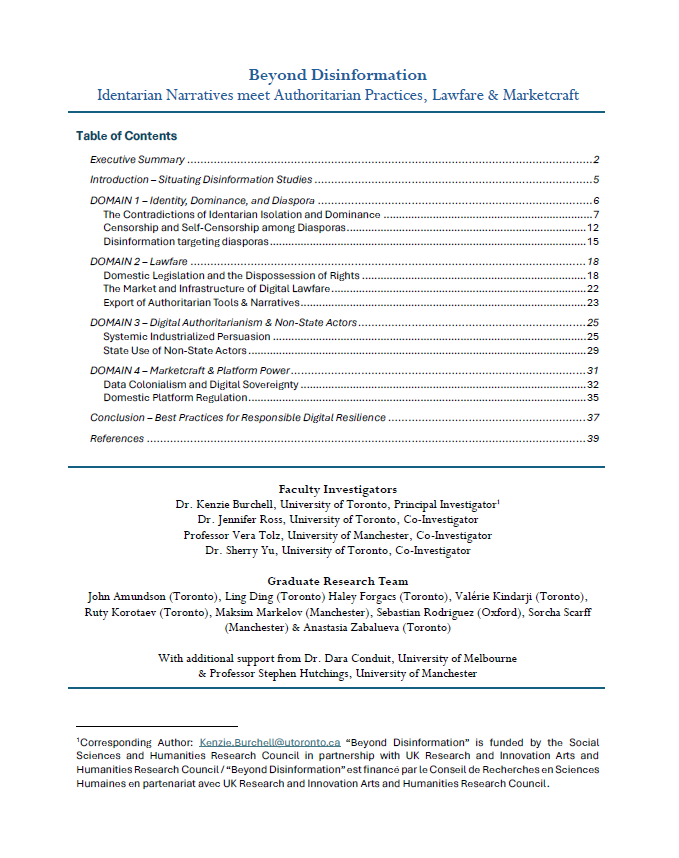Beyond Disinformation: Identarian Narratives meet Authoritarian Practices, Lawfare and Marketcraft

We are pleased to announce that our report, in collaboration with colleagues from the University of Toronto, has been published.
Abstract
Disinformation is now the status quo. Beyond the facts of the matter—false claims to be fact-checked or governmental narratives to be debunked—broader forces are shaping our everyday informational landscape. These forces reweight and reorder opportunities to speak, engage, express and represent oneself, limiting our capacity to know, understand, and participate in the world around us. Identity matters as much to this landscape as facts. Repressive legal templates and restrictive economic interventions redefine how we individually or collectively participate in digital life. These changes leave only narrow openings—apertures that permit limited ways of belonging to collective, interpretive communities—while foreclosing so many other possibilities for public life.By linking these domains of identity, authoritarianism, law and economics, this stakeholder and policy report surveys recent academic literature and journalistic best-practices to demonstrate how the contemporary informational landscape reduces opportunities for local, transnational and global experiences of collective engagement to the strategic needs of governments or the competing commercial imperatives of platform and data economies.
You can download the report below, and can use this link to share the article online (https://utoronto.scholaris.ca/items/54fef724-a6d2-478c-b96e-4d00ba494ec7)